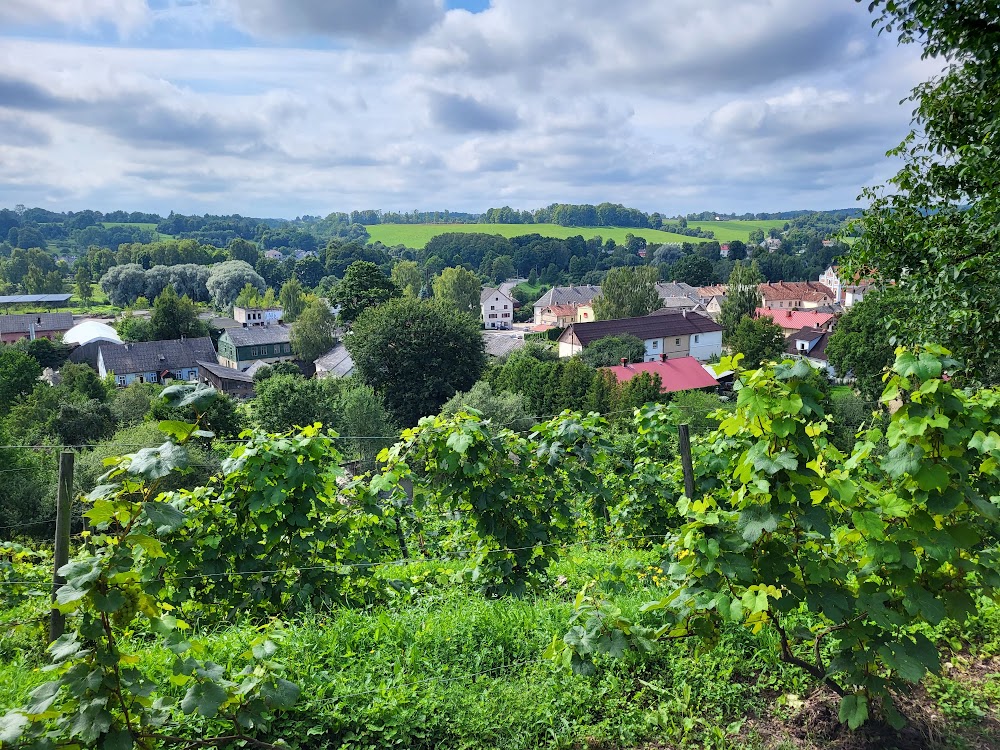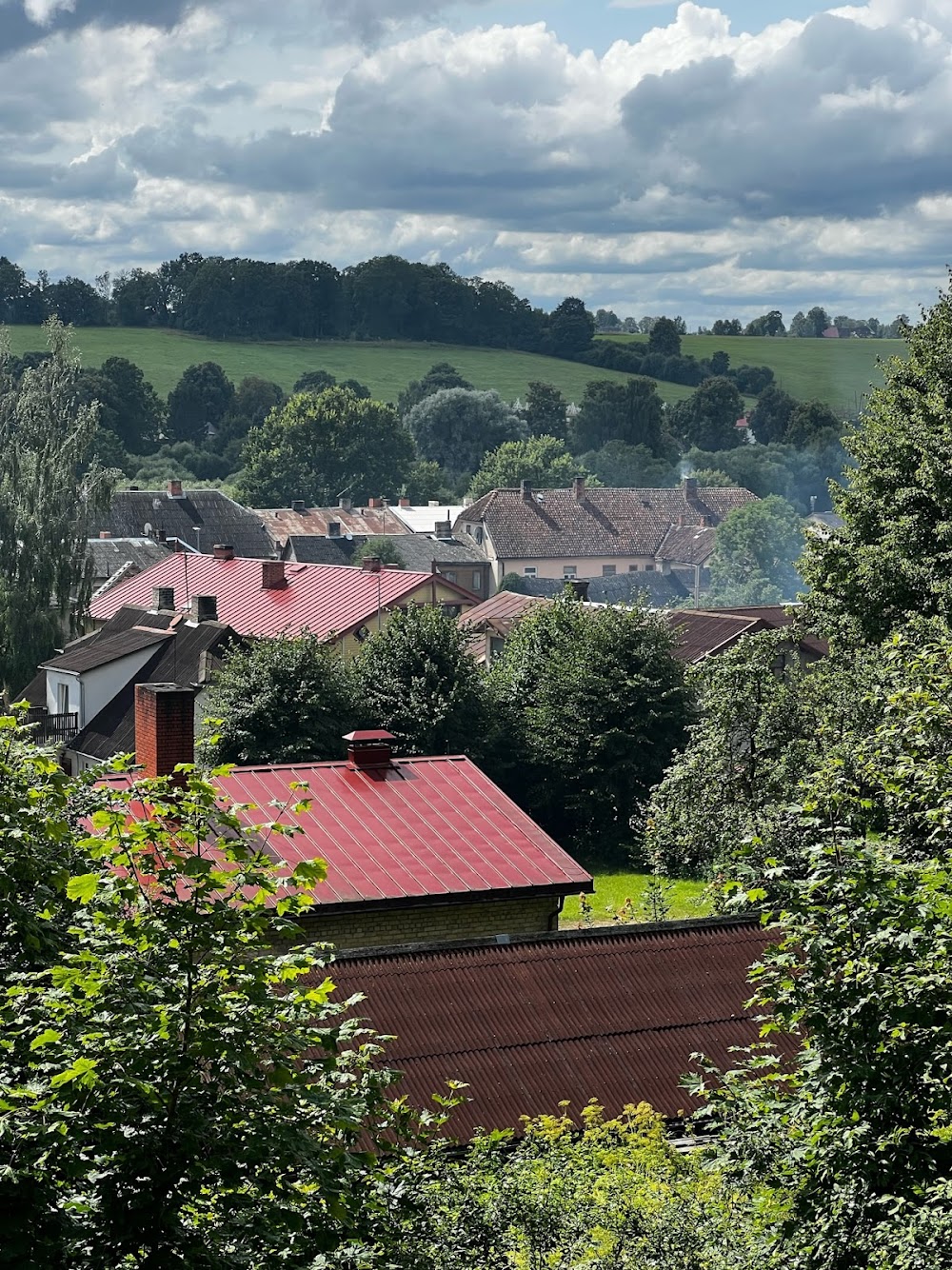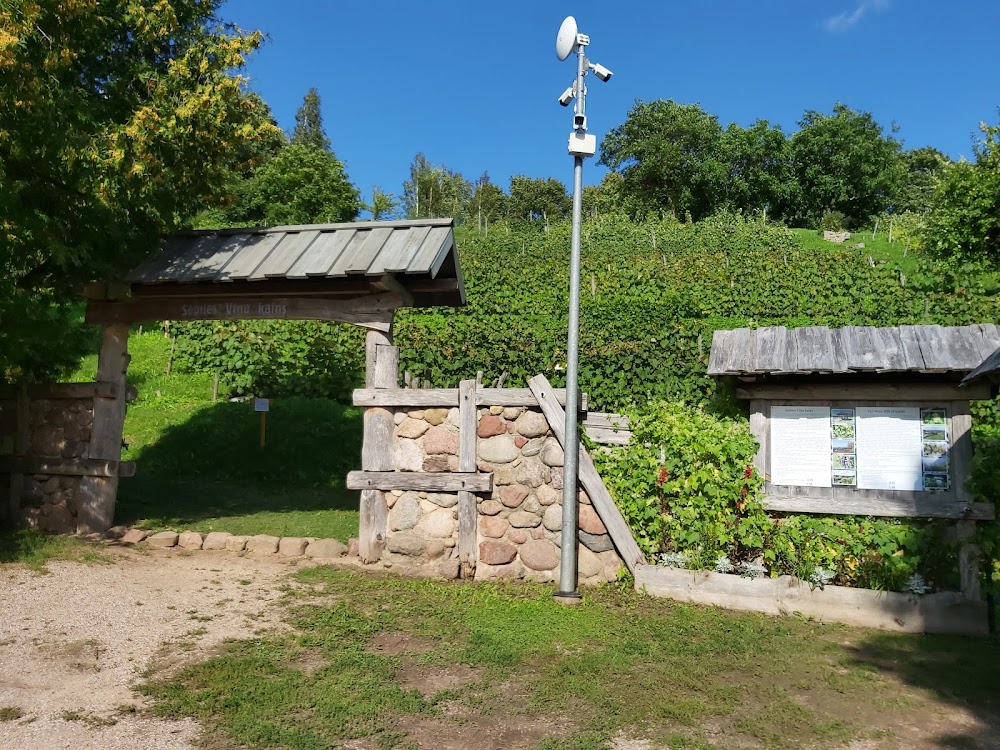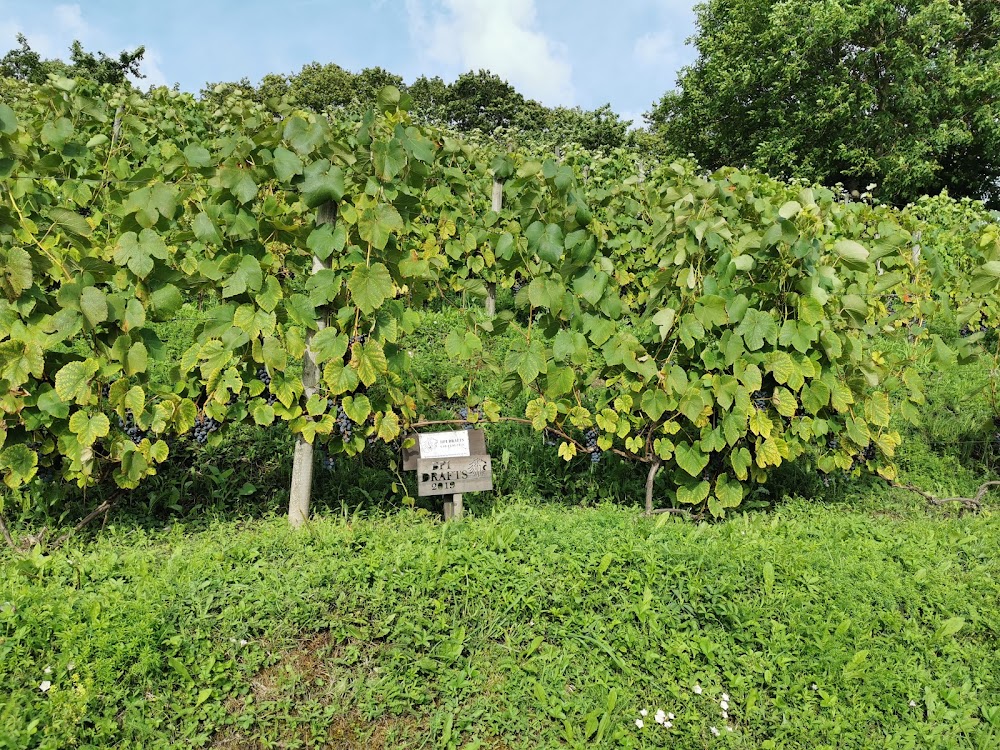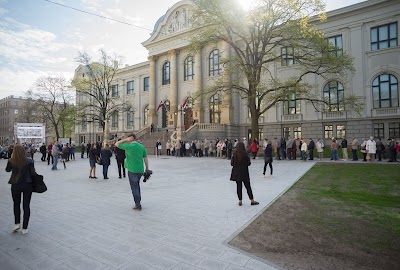Sabile Wine Hill (Sabiles Vīna kalns)
Overview
Discovering Sabile Wine Hill
Nestled in the picturesque Kandava Municipality of Latvia, the Wine Hill of Sabile is a captivating destination that weaves together rich history and natural beauty. Gracefully situated on the northern bank of the Abava River, it proudly holds the title of the northernmost open-air vineyard in the world. This charming vineyard is not just a place to cultivate grapes; it stands as a vibrant testament to local tradition, perseverance, and community spirit.
Historical Roots
The origins of Sabile Wine Hill date back to the early 14th century, when local founders recognized the fertile slopes and favorable climate of the Abava Valley as an ideal environment for viticulture. They began cultivating grape varieties that could thrive in the local climate, turning this small vineyard into a cornerstone of Sabile's cultural and agricultural landscape over the centuries.
Tradition and Craftsmanship
Maintaining Wine Hill requires a deep commitment to traditional viticulture methods that have been passed down through generations. Local growers have ingeniously adapted their techniques to meet the unique conditions of the hill. Careful pruning and nurturing of the grapevines ensure that they withstand the harsh winters and produce fruit during the warm months. Thanks to the tireless dedication of the community, the vineyards continue to thrive despite climatic challenges.
A Global Recognition
A significant milestone in the vineyard's history occurred in 1980 when it was officially recognized by the Guinness World Records as the northernmost open-air vineyard. This accolade brought global attention to the resilience and ingenuity of Sabile’s winegrowers, further solidifying its importance as a cultural landmark.
Scenic Beauty
The vineyard itself spans a breathtaking hill, offering stunning views of the surrounding landscape. Visitors are often enchanted by the sight of lush vines cascading down the terraced slopes, with winding footpaths inviting exploration. In summer, the vineyard transforms into a vibrant tapestry of green and purple hues, as rows of grapevines become laden with ripening grapes, creating a truly picturesque scene.
The Sabile Wine Festival
Sabile Wine Hill also serves as the heart of the annual Sabile Wine Festival, a lively celebration of the town’s winemaking heritage. Every summer, the community comes alive with festivities that include wine tastings, cultural performances, and local crafts. This event attracts tourists and wine enthusiasts from around the globe, eager to sample the unique flavors of Sabile’s wines and immerse themselves in the vibrant, communal atmosphere.
Distinctive Wines
The wines produced at Sabile Wine Hill are known for their distinctive character, shaped by the region's unique conditions. While the grape varieties may differ from those found in more temperate climates, Sabile’s wines carry a special charm that reflects the love and care invested in each bottle. Local winemakers take pride in their commitment to sustainability and authenticity, ensuring that every bottle tells a story of heritage and craftsmanship.
Innovation and Sustainability
Ongoing research and development initiatives aim to improve grape varieties and vinification methods. Local agricultural extension services collaborate closely with winemakers to introduce innovations that enhance yield and quality while preserving traditional practices. This blend of innovation and tradition is crucial to the vineyard's continued success.
Economic and Cultural Impact
The significance of Wine Hill to the local economy cannot be overstated. It generates jobs, supports tourism, and reinforces the area's cultural identity. The vineyard’s success has also inspired other agricultural ventures in the region, fostering a spirit of entrepreneurship and innovation.
A Symbol of Pride
Sabile Wine Hill stands as a powerful symbol of local pride, perseverance, and cultural richness. It represents a unique fusion of history, nature, and human ingenuity. With each passing year, the vineyard not only yields fruitful harvests but also cultivates a deeper sense of community and heritage in Kandava Municipality, Latvia.


